Shoulder mobility issues can be frustrating. Whether it’s a nagging ache or an inability to lift your arm fully, many people are searching for effective solutions. While traditional methods like physical therapy and medication often provide relief, there’s a world of alternative therapies waiting to be explored. These innovative approaches not only target the symptoms but also address underlying problems that may contribute to shoulder discomfort.
From groundbreaking techniques, which specifically target cases like frozen shoulder and nerve pain, to ancient practices such as acupuncture, various options exist beyond the usual recommendations. Each method brings its unique benefits and philosophies, offering fresh perspectives on healing and recovery. If you’re ready to take charge of your shoulder health in new ways, let’s dive into these alternative therapies that could unlock greater mobility and ease pain in unexpected ways.
Adhesive Capsulitis Embolization (ACE)
Adhesive Capsulitis Embolization (ACE) is an innovative procedure gaining traction for those suffering from frozen shoulders. This minimally invasive technique targets the thickened capsule surrounding the shoulder joint, which can lead to pain and restricted movement. During ACE, a specialized catheter is inserted to deliver small embolic agents. These agents create localized inflammation that triggers healing responses in the affected tissue. It’s fascinating how this method uses your body’s natural processes to promote recovery. Patients often report significant improvements in mobility and a reduction in discomfort following the treatment. The best part? Recovery time tends to be short, allowing individuals to return quickly to their daily activities.
Myofascial Release and Bodywork Therapies
Myofascial release therapy relieves tension in the fascia, the connective tissue surrounding muscles. This technique targets tight areas to enhance shoulder mobility and reduce pain. Practitioners use gentle, sustained pressure to stretch and soften these restricted tissues. As a result, blood flow improves, promoting healing and flexibility. Bodywork therapies complement myofascial release by incorporating techniques like deep tissue massage or trigger point therapy. Each method aims to address underlying issues contributing to limited movement.
Patients often report an increased range of motion after just a few sessions. The combination of targeted manipulation and relaxation can provide profound relief from chronic discomfort. These therapies emphasize an individualized approach, tailoring treatments based on each person’s unique needs. By focusing on physical symptoms and emotional well-being, practitioners create a holistic experience for those seeking more excellent shoulder function.
Acupuncture

Acupuncture is an ancient practice rooted in Traditional Chinese Medicine. It involves inserting fine needles into specific points on the body to restore harmony and promote healing. For shoulder mobility, acupuncture can target trigger points contributing to pain and stiffness. Stimulating these areas encourages blood flow and reduces inflammation.
Many people report relief from chronic discomfort after a few sessions. Acupuncture’s relaxing nature also helps ease tension accumulated in surrounding muscles. Practitioners often tailor treatments based on individual needs, allowing for a personalized approach. As a complementary therapy, it works well with other modalities to improve shoulder function.
Regenerative Medicine (Stem Cell Therapy)
Regenerative medicine is revolutionizing how we approach shoulder mobility issues. At the forefront is stem cell therapy, which harnesses the body’s natural healing abilities. Stem cells have a remarkable capacity to repair and regenerate damaged tissues. When injected into affected areas of the shoulder, they can promote healing at an unprecedented level.
This innovative treatment may relieve patients suffering from chronic pain or limited motion. It works by reducing inflammation and stimulating tissue regeneration, leading to improved function over time. Unlike traditional methods that often focus on symptom management, stem cell therapy targets the root cause of discomfort. This makes it a compelling option for those seeking long-lasting results without invasive surgery.
Chiropractic Care

Chiropractic care offers a hands-on approach to improving shoulder mobility. Chiropractors utilize spinal adjustments and manipulative techniques to relieve tension in the muscles surrounding the shoulder joint. By realigning the spine, they can enhance overall body function. This may lead to better movement patterns and reduced discomfort in the shoulders. Many people experience restrictions due to misalignments that create strain on various muscle groups. Chiropractic adjustments aim to restore balance, allowing for improved range of motion.
Additionally, chiropractors often provide personalized exercises and stretches tailored to individual needs. These therapeutic movements support long-term recovery while reinforcing proper mechanics. Regular visits can contribute significantly to maintaining shoulder health, making chiropractic an effective option for those seeking alternatives beyond traditional therapies. Pain relief is just one aspect; it’s about fostering lasting wellness too.…





 Choosing the right mouthwash is crucial for maintaining your dental bridge. A non-abrasive formula can help protect both your natural teeth and the bridge itself. Harsh ingredients in some mouthwashes may wear down materials or irritate the gums. This can lead to discomfort and potential damage over time. Opting for a gentle, alcohol-free option ensures that you cleanse without causing harm. Look for products specifically labeled as safe for dental work.
Choosing the right mouthwash is crucial for maintaining your dental bridge. A non-abrasive formula can help protect both your natural teeth and the bridge itself. Harsh ingredients in some mouthwashes may wear down materials or irritate the gums. This can lead to discomfort and potential damage over time. Opting for a gentle, alcohol-free option ensures that you cleanse without causing harm. Look for products specifically labeled as safe for dental work.
 Chipped or cracked teeth can be a source of embarrassment. They disrupt the harmony of your smile and may even cause discomfort. Thankfully, composite bonding provides an effective solution. During this procedure, a tooth-colored resin is carefully applied to the damaged area. The dentist molds it to match the natural contours of your tooth. Once it’s shaped perfectly, a special light hardens the material. This not only restores functionality but also blends seamlessly with surrounding teeth.
Chipped or cracked teeth can be a source of embarrassment. They disrupt the harmony of your smile and may even cause discomfort. Thankfully, composite bonding provides an effective solution. During this procedure, a tooth-colored resin is carefully applied to the damaged area. The dentist molds it to match the natural contours of your tooth. Once it’s shaped perfectly, a special light hardens the material. This not only restores functionality but also blends seamlessly with surrounding teeth.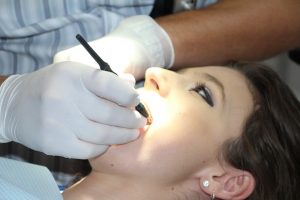 Misshapen teeth can affect your confidence and smile. Fortunately, composite bonding offers a solution that’s both effective and minimally invasive. This technique involves applying a tooth-colored resin to reshape the contours of your teeth. It allows for tailored adjustments, ensuring each tooth looks harmonious with the rest. With skilled hands, a dentist can sculpt these materials to create an aesthetically pleasing appearance. You’ll be amazed at how small changes can make such a difference in your overall look. Composite bonding is versatile too.
Misshapen teeth can affect your confidence and smile. Fortunately, composite bonding offers a solution that’s both effective and minimally invasive. This technique involves applying a tooth-colored resin to reshape the contours of your teeth. It allows for tailored adjustments, ensuring each tooth looks harmonious with the rest. With skilled hands, a dentist can sculpt these materials to create an aesthetically pleasing appearance. You’ll be amazed at how small changes can make such a difference in your overall look. Composite bonding is versatile too.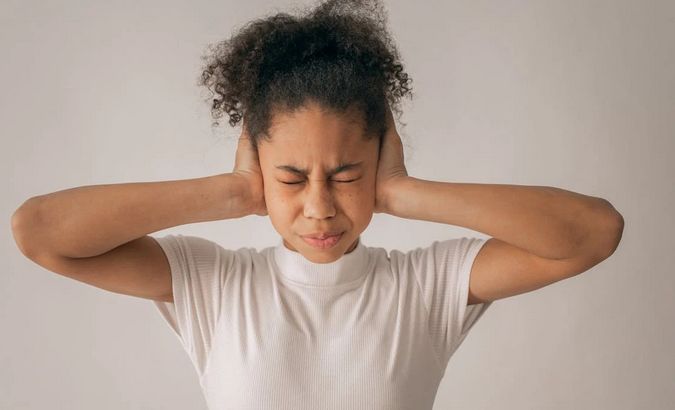

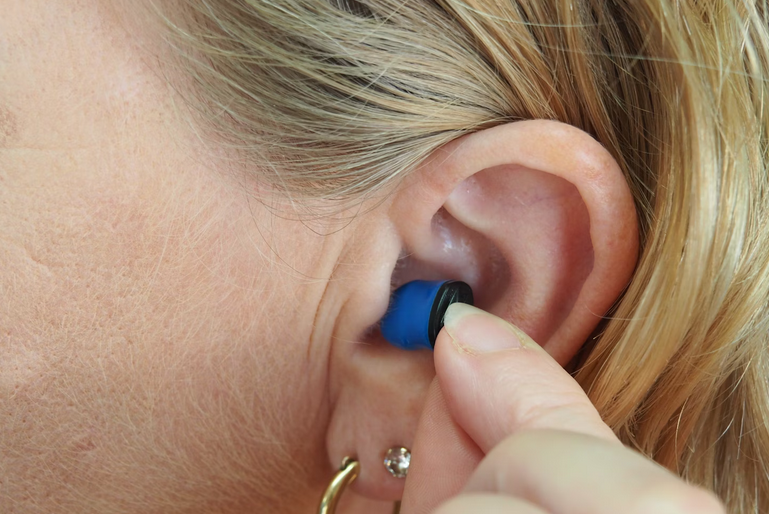

 Dealing with chipped teeth? Or maybe yellowing teeth? Veneers can dramatically enhance your smile. If discoloration from years of coffee or wine has left its mark, veneers can ultimately give you that bright look in no time. They act as a cover-up for imperfections and provide a fresh canvas. For those with gaps between their teeth or minor alignment issues, veneers offer an efficient way to achieve symmetry without extensive orthodontic work. Even slight irregularities can be corrected quickly and effectively with this treatment.
Dealing with chipped teeth? Or maybe yellowing teeth? Veneers can dramatically enhance your smile. If discoloration from years of coffee or wine has left its mark, veneers can ultimately give you that bright look in no time. They act as a cover-up for imperfections and provide a fresh canvas. For those with gaps between their teeth or minor alignment issues, veneers offer an efficient way to achieve symmetry without extensive orthodontic work. Even slight irregularities can be corrected quickly and effectively with this treatment. Caring for veneers is something that should be part of your everyday care. This is to maintain their longevity and appearance. While they are durable, they still require attention. Regular brushing and flossing should be part of your daily routine. You’ll also need to schedule multiple visits with your dentist during the veneer process. The initial consultation sets the stage, but shaping your teeth for veneers often requires more than one appointment. After placement, follow-up appointments ensure everything fits right and functions well.
Caring for veneers is something that should be part of your everyday care. This is to maintain their longevity and appearance. While they are durable, they still require attention. Regular brushing and flossing should be part of your daily routine. You’ll also need to schedule multiple visits with your dentist during the veneer process. The initial consultation sets the stage, but shaping your teeth for veneers often requires more than one appointment. After placement, follow-up appointments ensure everything fits right and functions well.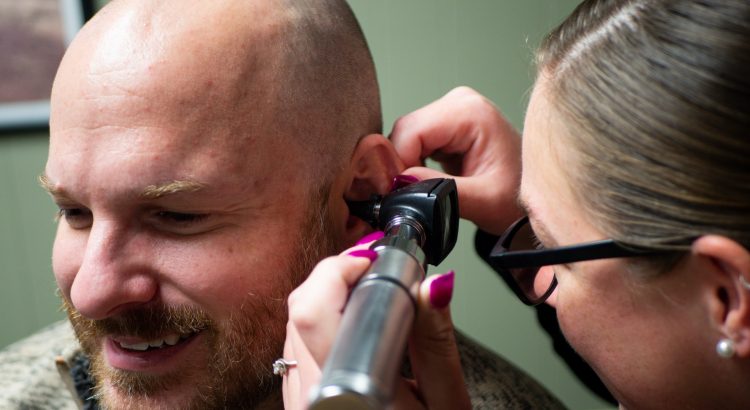
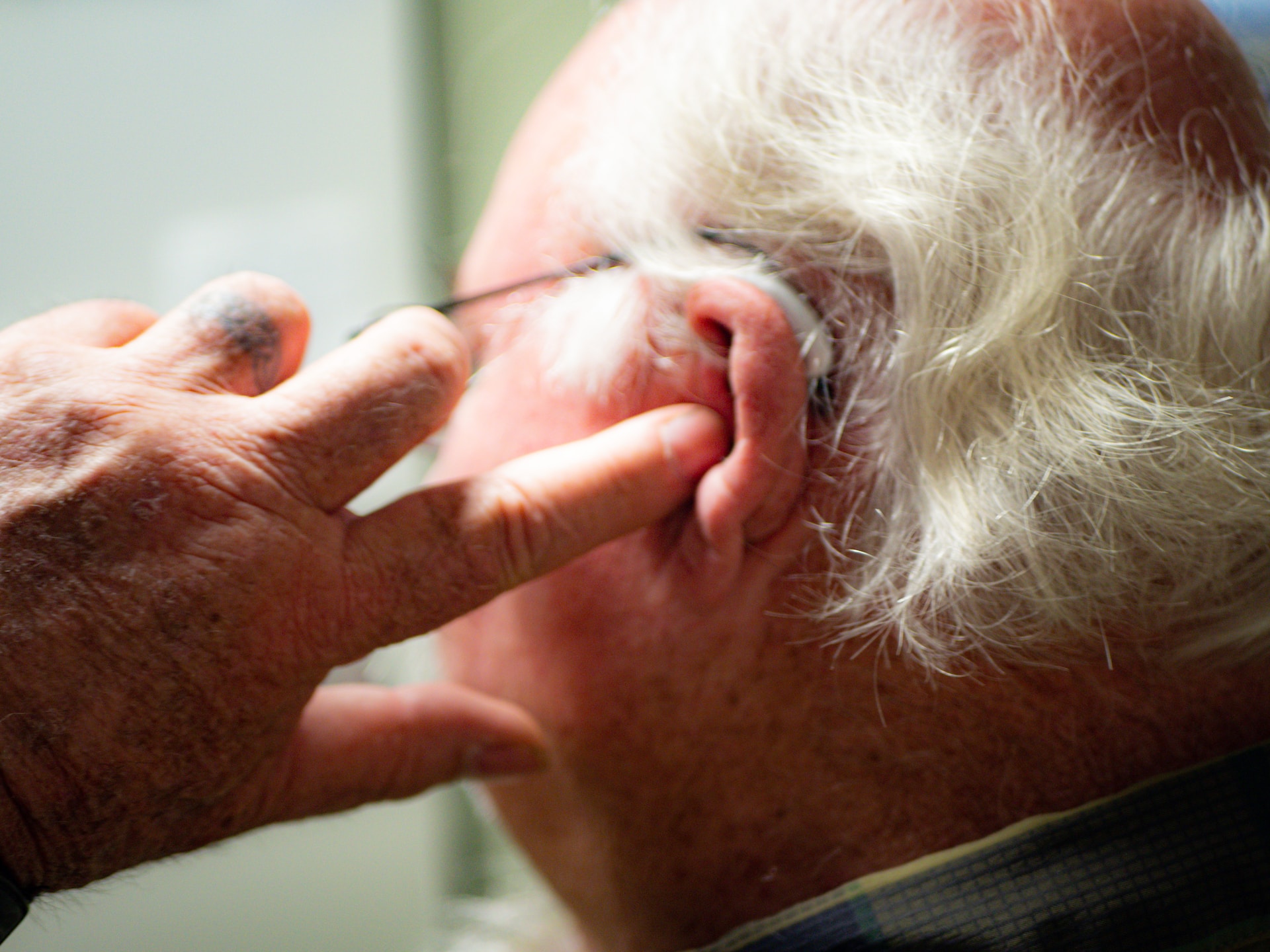
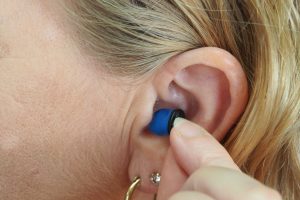 Tinnitus is a common ear problem that has affected millions of people worldwide. It is known to be characterized by the perception of ringing, buzzing, or hissing sounds in the ears without any external source. This condition can be incredibly frustrating and disruptive to daily life. The causes of tinnitus vary, but is usually often associated with damage to the inner ear due to exposure to loud noises, age-related hearing loss, or certain medications.
Tinnitus is a common ear problem that has affected millions of people worldwide. It is known to be characterized by the perception of ringing, buzzing, or hissing sounds in the ears without any external source. This condition can be incredibly frustrating and disruptive to daily life. The causes of tinnitus vary, but is usually often associated with damage to the inner ear due to exposure to loud noises, age-related hearing loss, or certain medications. We’ve all experienced the annoyance of having wax buildup in our
We’ve all experienced the annoyance of having wax buildup in our 

 When purchasing medical marijuana online, it is crucial to prioritize secure payment methods and shipping. This ensures that your transaction remains confidential and the product arrives safely at your doorstep. Always look for websites or sellers that offer secure payment options. Avoid sharing your credit card information directly on the website if possible. Instead, choose platforms that allow you to use secure payment gateways like PayPal or cryptocurrency. These options provide an extra layer of protection by keeping your financial details separate from the seller.
When purchasing medical marijuana online, it is crucial to prioritize secure payment methods and shipping. This ensures that your transaction remains confidential and the product arrives safely at your doorstep. Always look for websites or sellers that offer secure payment options. Avoid sharing your credit card information directly on the website if possible. Instead, choose platforms that allow you to use secure payment gateways like PayPal or cryptocurrency. These options provide an extra layer of protection by keeping your financial details separate from the seller.
 One of the benefits of seeing a private dentist is that you can get appointments at convenient times. Private dentists are not bound by the same rules and regulations as traditional dental offices, so they have more flexibility regarding scheduling. This means you can get an appointment that works with your schedule rather than work around the dentist’s schedule.
One of the benefits of seeing a private dentist is that you can get appointments at convenient times. Private dentists are not bound by the same rules and regulations as traditional dental offices, so they have more flexibility regarding scheduling. This means you can get an appointment that works with your schedule rather than work around the dentist’s schedule. When you see a private dentist, you can choose your
When you see a private dentist, you can choose your 
 A study shows that people who are obese have a 50% chance of dying prematurely. That is a huge number and should not be ignored. Losing weight will help you live longer and enjoy your life more. You will also decrease your chances of developing obesity-related diseases such as heart disease, stroke, diabetes, and cancer. You can lose weight with diet supplements, but don’t go ham on the pills without going to a doctor beforehand.
A study shows that people who are obese have a 50% chance of dying prematurely. That is a huge number and should not be ignored. Losing weight will help you live longer and enjoy your life more. You will also decrease your chances of developing obesity-related diseases such as heart disease, stroke, diabetes, and cancer. You can lose weight with diet supplements, but don’t go ham on the pills without going to a doctor beforehand. Being overweight can lead to low self-esteem and depression. When you are not comfortable in your own skin, it shows. You will look better and feel better when you lose weight. Your clothes will fit better, and you will have more energy to do the things you love. You will also be less likely to get sick since your immune system will be stronger.
Being overweight can lead to low self-esteem and depression. When you are not comfortable in your own skin, it shows. You will look better and feel better when you lose weight. Your clothes will fit better, and you will have more energy to do the things you love. You will also be less likely to get sick since your immune system will be stronger. One of the most important topics of the 2020s is mental health. Obesity can lead to mental health problems such as anxiety and depression. When you are carrying around
One of the most important topics of the 2020s is mental health. Obesity can lead to mental health problems such as anxiety and depression. When you are carrying around
 Ketone supplements come in many different forms, including powders, capsules, and liquids. The most popular type of ketone supplement is beta-hydroxybutyrate (BHB), a powder you can mix with water or other beverages. Other ketone supplements include exogenous ketones, which are ketones that you take in pill form, and ketone esters, which are a more potent form of exogenous ketones.
Ketone supplements come in many different forms, including powders, capsules, and liquids. The most popular type of ketone supplement is beta-hydroxybutyrate (BHB), a powder you can mix with water or other beverages. Other ketone supplements include exogenous ketones, which are ketones that you take in pill form, and ketone esters, which are a more potent form of exogenous ketones. If you are considering trying a ketogenic diet or are already following one, you may be wondering if you should also take ketone supplements. While the jury is still out on whether or not they are truly effective, there is some evidence to suggest that they can help your body transition into and maintain a state of ketosis.
If you are considering trying a ketogenic diet or are already following one, you may be wondering if you should also take ketone supplements. While the jury is still out on whether or not they are truly effective, there is some evidence to suggest that they can help your body transition into and maintain a state of ketosis.




 Mind Lab Pro is based on a complete, whole-food-based multivitamin formula that helps to support mental performance. Mind Lab Pro contains no synthetic nutrients or chemical isolates—instead, it’s powered by natural food extracts for optimum bioavailability and effectiveness.
Mind Lab Pro is based on a complete, whole-food-based multivitamin formula that helps to support mental performance. Mind Lab Pro contains no synthetic nutrients or chemical isolates—instead, it’s powered by natural food extracts for optimum bioavailability and effectiveness.
 It is important to note that many people cannot get significant results even with a good workout routine without the help of supplements. These supplements do not have to be expensive or dangerous if you consider the consequences of some supplements. Some of these include protein and creatine.
It is important to note that many people cannot get significant results even with a good workout routine without the help of supplements. These supplements do not have to be expensive or dangerous if you consider the consequences of some supplements. Some of these include protein and creatine. Make sure you are eating enough protein. According to the Centers for Disease Control and Prevention (CDC), the recommended daily intake of protein is 50 grams per day for a person who weighs 80 kilograms or 176 pounds, according to the Centers for Disease Control and Prevention (CDC). However, many experts recommend more than this as it will help build muscle mass.
Make sure you are eating enough protein. According to the Centers for Disease Control and Prevention (CDC), the recommended daily intake of protein is 50 grams per day for a person who weighs 80 kilograms or 176 pounds, according to the Centers for Disease Control and Prevention (CDC). However, many experts recommend more than this as it will help build muscle mass. Unfortunately, many people do not get the recommended amount of sleep each night, which is a problem for muscle mass growth. Not only does sleep help your muscles recover from strenuous workouts, but it also helps with muscle growth.
Unfortunately, many people do not get the recommended amount of sleep each night, which is a problem for muscle mass growth. Not only does sleep help your muscles recover from strenuous workouts, but it also helps with muscle growth.
 It would be best to understand the various types of medical marijuana because they have different ways of consuming them. You could buy cannabis in the form of vapes, edibles, and other types. If you are new to cannabis, it would be best first to try various ways of using it to find the best one for you.
It would be best to understand the various types of medical marijuana because they have different ways of consuming them. You could buy cannabis in the form of vapes, edibles, and other types. If you are new to cannabis, it would be best first to try various ways of using it to find the best one for you. You must avoid walking into any dispensary and purchasing your marijuana or ordering from any online store. The best way would be to research various dispensaries and choose the best one for you. This is because the dispensaries differ in the products they stock, the prices, customer service, and even aesthetics.
You must avoid walking into any dispensary and purchasing your marijuana or ordering from any online store. The best way would be to research various dispensaries and choose the best one for you. This is because the dispensaries differ in the products they stock, the prices, customer service, and even aesthetics.
 Should you wake up a lot, be sure that your sleeping environment doesn’t have any lights, sounds, and temperature changes. And restrict the use of computers, tablets, and the TV earlier bedtime Digital devices such as these can stimulate your brain and keep you awake rather than asleep. If you are heading in an intensive job interval, being prepared can often be half of the battle. However, it is not only about the degree of sleep you get. If you have an underlying sleep disorder or condition that hinders you from getting sufficient sleep, see your physician. Otherwise, you might not have the capacity to be awake and alert as you ought to be.
Should you wake up a lot, be sure that your sleeping environment doesn’t have any lights, sounds, and temperature changes. And restrict the use of computers, tablets, and the TV earlier bedtime Digital devices such as these can stimulate your brain and keep you awake rather than asleep. If you are heading in an intensive job interval, being prepared can often be half of the battle. However, it is not only about the degree of sleep you get. If you have an underlying sleep disorder or condition that hinders you from getting sufficient sleep, see your physician. Otherwise, you might not have the capacity to be awake and alert as you ought to be. The need for stimulants such as caffeine may be due to a poor sleep schedule or an irregular sleep routine. Of course, this can change, but sleeping the same amount of hours each night can help the body balance its energy levels. Going to bed and getting up at the same time each day can also be helpful. Having a regular schedule can help your body get more rest, which can help your brain stay awake and energized throughout the day.
The need for stimulants such as caffeine may be due to a poor sleep schedule or an irregular sleep routine. Of course, this can change, but sleeping the same amount of hours each night can help the body balance its energy levels. Going to bed and getting up at the same time each day can also be helpful. Having a regular schedule can help your body get more rest, which can help your brain stay awake and energized throughout the day.
 It is an excellent idea to research on the doctor’s experience, credentials, and information on their website. Choosing an experienced doctor who specializes in gall bladder removal will help you maneuver the procedure with ease. Experienced surgeons in performing gall bladder removal surgeries have enough expertise and help prevent complications. It is essential to check if the surgeon has any history of malpractice or has faced disciplinary actions for handling patients in an unprofessional manner.
It is an excellent idea to research on the doctor’s experience, credentials, and information on their website. Choosing an experienced doctor who specializes in gall bladder removal will help you maneuver the procedure with ease. Experienced surgeons in performing gall bladder removal surgeries have enough expertise and help prevent complications. It is essential to check if the surgeon has any history of malpractice or has faced disciplinary actions for handling patients in an unprofessional manner. The first step in finding a competent surgeon for gall bladder removal is making a list of potential surgeons. Scheduling appointments with each surgeon to conduct interviews will help you know the doctor well and feel comfortable working with him. It is essential to talk with the surgeon to see if he respects your opinions and experience dealing with patients with similar health issues as yours. Asking the doctor how he deals with complications will enable you to know if the professional is competent enough to deal with difficulties in case they occur.
The first step in finding a competent surgeon for gall bladder removal is making a list of potential surgeons. Scheduling appointments with each surgeon to conduct interviews will help you know the doctor well and feel comfortable working with him. It is essential to talk with the surgeon to see if he respects your opinions and experience dealing with patients with similar health issues as yours. Asking the doctor how he deals with complications will enable you to know if the professional is competent enough to deal with difficulties in case they occur. It is essential to check if the hospital has a good reputation in dealing with patients with problems related to gall bladder removal and the quality of healthcare that they offer to their patients. Consider searching for a hospital in your area that provides professional services for gall bladder removal. The topmost consideration is a doctor who has a clinic that offers gall bladder removal.
It is essential to check if the hospital has a good reputation in dealing with patients with problems related to gall bladder removal and the quality of healthcare that they offer to their patients. Consider searching for a hospital in your area that provides professional services for gall bladder removal. The topmost consideration is a doctor who has a clinic that offers gall bladder removal.
 Nowadays, you can find magic truffles produced in labs. Ideally, they are grown in bags with spores and substrate at a controlled temperature to accelerate their growth. They are kept in a microclimate condition to prevent them from growing into real mushrooms. The bags are then colonized with mycelium and can be stored in a dark place for several months. These truffles are harvested and packed for consumption.
Nowadays, you can find magic truffles produced in labs. Ideally, they are grown in bags with spores and substrate at a controlled temperature to accelerate their growth. They are kept in a microclimate condition to prevent them from growing into real mushrooms. The bags are then colonized with mycelium and can be stored in a dark place for several months. These truffles are harvested and packed for consumption.
 One of the crucial aspects you need to consider when buying these products is determining the use. In most cases, most people consider going for these products to help cure skin issues and get rid of excessive fats from the body.
One of the crucial aspects you need to consider when buying these products is determining the use. In most cases, most people consider going for these products to help cure skin issues and get rid of excessive fats from the body. Another significant step you need to remember when buying the right
Another significant step you need to remember when buying the right 
 If you are looking to protect yourself from suffering diseases associated with lifestyle, then regular exercise is the key. Surprisingly, this can also aid in boosting your testosterone levels. Research studies indicate that people who are on a regular exercise regimen have higher levels of testosterone in the body.
If you are looking to protect yourself from suffering diseases associated with lifestyle, then regular exercise is the key. Surprisingly, this can also aid in boosting your testosterone levels. Research studies indicate that people who are on a regular exercise regimen have higher levels of testosterone in the body. It is not just exercise that can assist in boosting your testosterone levels but what you eat as well. That is why you should ensure that you are always on the right diet to maintain an optimal level of body hormones, not just testosterone. You should always make sure that your meals have adequate proteins as they assist with fat loss which can consequently boost your testosterone.
It is not just exercise that can assist in boosting your testosterone levels but what you eat as well. That is why you should ensure that you are always on the right diet to maintain an optimal level of body hormones, not just testosterone. You should always make sure that your meals have adequate proteins as they assist with fat loss which can consequently boost your testosterone. When you subject yourself to constant stress, the stress hormone cortisol is produced in large quantities. You should be careful as a large concentration of this hormone in the body can significantly reduce your testosterone levels. When the cortisol levels in the body go up, testosterone levels reduce and vice versa.
When you subject yourself to constant stress, the stress hormone cortisol is produced in large quantities. You should be careful as a large concentration of this hormone in the body can significantly reduce your testosterone levels. When the cortisol levels in the body go up, testosterone levels reduce and vice versa.

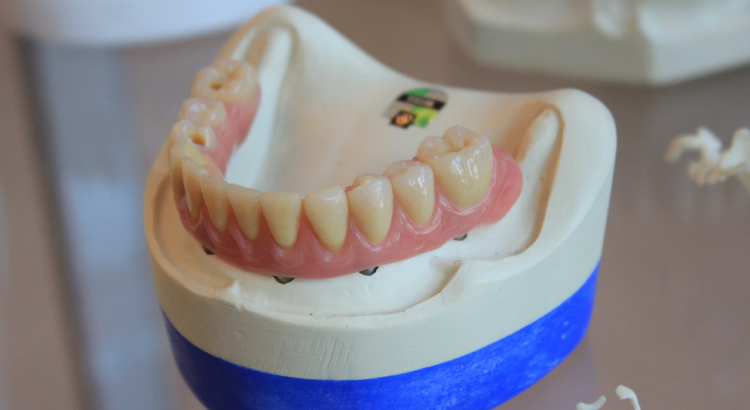
 The first thing you should consider is the doctor’s level of training. Though it might seem like
The first thing you should consider is the doctor’s level of training. Though it might seem like 
 Many people tend to suffer from various types of pain. It might come as a surprise to some people that the cannabis plant has been used to ease man’s pain since ancient times. Many suffer from pain because of injuries and certain illnesses like arthritis. One of the reasons why CBD oil has become popular with many people is that it has properties crucial in relieving pain. The topic of pain has been quite controversial as most prescribed pain medication has adverse effects. Unlike most pain killer pills, CBD oil does not have any adverse side effects and is not addictive since the body can not build a tolerance.
Many people tend to suffer from various types of pain. It might come as a surprise to some people that the cannabis plant has been used to ease man’s pain since ancient times. Many suffer from pain because of injuries and certain illnesses like arthritis. One of the reasons why CBD oil has become popular with many people is that it has properties crucial in relieving pain. The topic of pain has been quite controversial as most prescribed pain medication has adverse effects. Unlike most pain killer pills, CBD oil does not have any adverse side effects and is not addictive since the body can not build a tolerance.




 After you ship your boxes to the company, they will confirm quantity and quality. The company will then transfer money to your account. Fortunately, the process is fast and does not take several days. A lot of people who want to sell their diabetic test strips are not sure whether they should do it online. Although there are companies that provide drop-off locations, such options are not available to every person. Most companies provide mail-in service with free shipping options to make the process easy to sell your strips and get the money.
After you ship your boxes to the company, they will confirm quantity and quality. The company will then transfer money to your account. Fortunately, the process is fast and does not take several days. A lot of people who want to sell their diabetic test strips are not sure whether they should do it online. Although there are companies that provide drop-off locations, such options are not available to every person. Most companies provide mail-in service with free shipping options to make the process easy to sell your strips and get the money.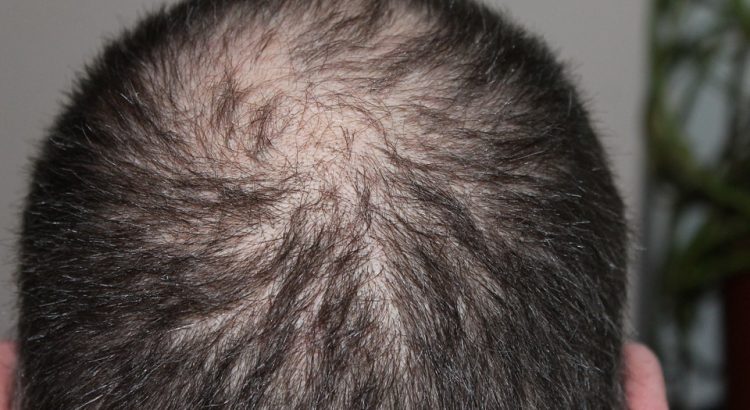



 When you want to purchase an electric
When you want to purchase an electric 
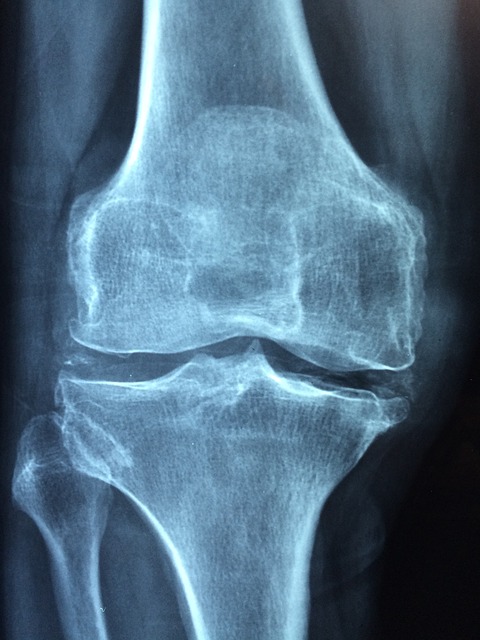 Anti-inflammatory Properties
Anti-inflammatory Properties More Ways of Application
More Ways of Application
 It is crucial to understand that pulling hair involves the hands, and it is essential to ensure that you engage your hands in some other task once you feel to pull out your hair. Through technology, we have multiple devices that can help you to avoid this habit once your hands start to move towards your head.
It is crucial to understand that pulling hair involves the hands, and it is essential to ensure that you engage your hands in some other task once you feel to pull out your hair. Through technology, we have multiple devices that can help you to avoid this habit once your hands start to move towards your head.
 determine your body balance. Make sure you have the right physique for a perfect body balance. Muscle pain that comes about as a result of some of these vigorous workouts can bring about discomfort. It can turn out to be severe on several occasions and keep you out of the gym. There are different things you can do to recover fast from muscle pain after a vigorous workout. They include:
determine your body balance. Make sure you have the right physique for a perfect body balance. Muscle pain that comes about as a result of some of these vigorous workouts can bring about discomfort. It can turn out to be severe on several occasions and keep you out of the gym. There are different things you can do to recover fast from muscle pain after a vigorous workout. They include: of much energy can also help you recover from muscle pain after a severe workout. You can try walking or swimming because they do not use up much of your energy or subject you to more pain. Light exercises help reduce the lactic acid buildup, and this speeds up recovery.…
of much energy can also help you recover from muscle pain after a severe workout. You can try walking or swimming because they do not use up much of your energy or subject you to more pain. Light exercises help reduce the lactic acid buildup, and this speeds up recovery.…
 If you are at work or doing something that requires full concentration, it is best if you keep off THC as far as possible. So will a reputable CBD brand. The best CBD products contain none at all.
If you are at work or doing something that requires full concentration, it is best if you keep off THC as far as possible. So will a reputable CBD brand. The best CBD products contain none at all.
 Anxiety and depression here are not those bad feelings you have just because you are bored or lonely. We refer to the clinical and professionally-diagnosed condition here. Therefore, before you claim yourself as depressed and suffering from anxiety, you’d better consult a psychiatrist first.
Anxiety and depression here are not those bad feelings you have just because you are bored or lonely. We refer to the clinical and professionally-diagnosed condition here. Therefore, before you claim yourself as depressed and suffering from anxiety, you’d better consult a psychiatrist first.  This claim may sound controversial since we have been long indoctrinated to believe that smoking weed could make us stupid. However, studies resulted otherwise.
This claim may sound controversial since we have been long indoctrinated to believe that smoking weed could make us stupid. However, studies resulted otherwise. 


 Payment
Payment
 You might lose your appetite due to sickness or other reasons. If you fail to eat, you will deny your body the fuel that it requires to operate and fight diseases. Some diseases are life-threatening, and you might have to pay with your life if they are ignored. Research has shown that those who use CBD products have more appetite compared to their counterparts that don’t. Underage patients need guidance to obtain and use CBD products to boost their appetite.
You might lose your appetite due to sickness or other reasons. If you fail to eat, you will deny your body the fuel that it requires to operate and fight diseases. Some diseases are life-threatening, and you might have to pay with your life if they are ignored. Research has shown that those who use CBD products have more appetite compared to their counterparts that don’t. Underage patients need guidance to obtain and use CBD products to boost their appetite.



 Mobility Challenges
Mobility Challenges Before you start considering which recumbent bike to buy, make sure you are definite on what you want to achieve. At the end of the day, what matters the most is your personal fitness goals. Some bikes are designed for specific functions while others are versatile. Therefore, a shrewd customer should consider what they want to achieve with this fitness bike before indulging in the buying process.
Before you start considering which recumbent bike to buy, make sure you are definite on what you want to achieve. At the end of the day, what matters the most is your personal fitness goals. Some bikes are designed for specific functions while others are versatile. Therefore, a shrewd customer should consider what they want to achieve with this fitness bike before indulging in the buying process.
 A cardio exercise is meant to improve your heart and lungs. Activities that can give a healthy amount of stress to these two important organs of our body will make them healthier, function better and will let them adapt better to changing physical activities.
A cardio exercise is meant to improve your heart and lungs. Activities that can give a healthy amount of stress to these two important organs of our body will make them healthier, function better and will let them adapt better to changing physical activities. Aging can manifest in many ways. Through fitness boxing, body strength can be prolonged over more years of your life and you may be able to endure relatively moderate physical activities during old age. The formation of unwanted fats in parts of your body may not happen to you as it is to other individuals as they age.
Aging can manifest in many ways. Through fitness boxing, body strength can be prolonged over more years of your life and you may be able to endure relatively moderate physical activities during old age. The formation of unwanted fats in parts of your body may not happen to you as it is to other individuals as they age.

 If you do not have an insurance provider, then you find yourself in a scenario where you need to pay out a lot of cash for your treatment. When you do not need that to occur, you will be required to make sure the dentist you choose has some form of repayment plan. Whether it is weekly or monthly, a payment plan could most certainly save you a lot of trouble.
If you do not have an insurance provider, then you find yourself in a scenario where you need to pay out a lot of cash for your treatment. When you do not need that to occur, you will be required to make sure the dentist you choose has some form of repayment plan. Whether it is weekly or monthly, a payment plan could most certainly save you a lot of trouble.
 Eating a balanced diet is healthy. What this means is that one’s body will be nourished with the right nutrients for one o remain healthy. Our bodies are prone to illnesses, and one of the best ways to stay clear of such diseases is by eating healthy. The nutrients that you get from taking a healthy meal will go a long way in replenishing the lost energy and repairing the worn out tissues in your body. Eating robust also enables your body to operate optimally. You will not suffer frequent fatigue- a common problem in people who do not observe
Eating a balanced diet is healthy. What this means is that one’s body will be nourished with the right nutrients for one o remain healthy. Our bodies are prone to illnesses, and one of the best ways to stay clear of such diseases is by eating healthy. The nutrients that you get from taking a healthy meal will go a long way in replenishing the lost energy and repairing the worn out tissues in your body. Eating robust also enables your body to operate optimally. You will not suffer frequent fatigue- a common problem in people who do not observe 

 Interval training involves short bursts of very rigorous exercises followed by short rests. A good example is sprinting as fast as you can on the treadmill for two minutes or less, then resting for a minute. You can also perform massive kettlebell swings or jump squats. During the time of the exercise, maximum energy is used as you give your all. No wonder this exercising burns calories big time and enhances your aerobic fitness. Incorporating strength training in interval raining adds color to the already excellent package.
Interval training involves short bursts of very rigorous exercises followed by short rests. A good example is sprinting as fast as you can on the treadmill for two minutes or less, then resting for a minute. You can also perform massive kettlebell swings or jump squats. During the time of the exercise, maximum energy is used as you give your all. No wonder this exercising burns calories big time and enhances your aerobic fitness. Incorporating strength training in interval raining adds color to the already excellent package.